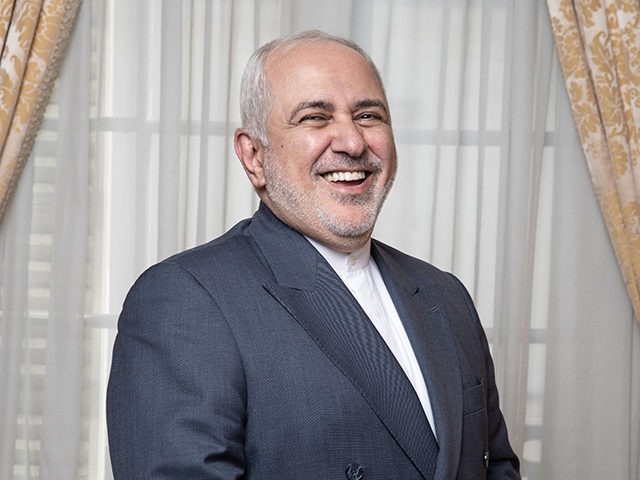Iranian Foreign Minister Mohammad Javad Zarif made a surprise appearance at the G7 summit in France on Sunday, a bit of collusion between the French and Iranian governments that appeared to be French President Emmanuel Macron’s gambit to jump-start diplomacy between Washington and Tehran.
The Iranian Foreign Ministry said Zarif visited the G7 summit to speak with French Foreign Minister Jean-Yves Le Drian on the sidelines, while Macron’s office said there was no intention to force an encounter between Zarif and U.S. President Donald Trump.
However, Zarif met with Macron in Paris before G7 began, so the idea that he traveled to Biarritz in southern France purely to have more discussions with Macron’s administration is somewhat difficult to credit.
Zarif tarried in Biarritz for about three and a half hours, with Macron joining his meeting with Le Drian for the last thirty minutes, and then returned to Iran, without much apparent progress. French officials said Zarif and the French government are working to “refine Iranian propositions” to preserve the 2015 nuclear deal and described the meeting as “positive.”
One anonymous source said Macron bringing Zarif to the summit was “unprecedented, and given the context, it’s pretty audacious.”
The White House said Zarif’s appearance at the G7 was a “surprise” and stated that no U.S. officials met with him. NBC News quoted three White House officials who said they were “blindsided” by the Iranian foreign minister’s appearance and indicated “some in the administration were furious at the French government’s decision to invite Zarif to Biarritz without significant advance notice.”
One of NBC’s sources, however, indicated President Donald Trump himself was neither greatly surprised nor terribly upset by Zarif’s visit. At least one senior French official told the New York Times that Trump was given advance warning about Zarif, although how far in advance was not specified.
“I knew he was coming,” Trump said of Zarif’s visit on Monday. “[President Macron] asked me. I don’t consider that disrespectful at all, especially when he asked me for approval.”
Treasury Secretary Steven Mnuchin repeated that the Trump administration is willing to meet with Iranian officials whenever they are ready to talk, implying Macron and Zarif’s stunt was a waste of time.
“The president has said before that to the extent Iran wants to sit down and negotiate, he would not set preconditions to those negotiations. I’m not going to make any more comments about who’s here and who’s not here and what conversations may or may not be going on,” Mnuchin said.
The U.S. State Department noted Iran’s recent threats against a Washington-based think tank, the Foundation for the Defense of Democracies (FDD), and implied it was inappropriate for Macron to bring Zarif to the G7 summit after the Iranian regime made such terrorist threats.
FDD chief executive Mark Dubowitz said so explicitly on Twitter, adding that Iran should be banned from the U.N. General Assembly if it makes any more threats:
Bloomberg News quoted a number of G7 officials and aides – some of them French – who sounded weary of Macron’s conduct at the meeting, with one official describing Zarif’s surprise appearance as “a typical Macron stunt.” Trump might have been warned of the Iranian foreign minister’s approach but, evidently, few European leaders were.
Even European delegations firmly in favor of keeping the Iran nuclear deal alive seemed annoyed at Macron hijacking E.U. diplomacy and diverting all media attention to Zarif’s visit. Alternatively, the Washington Examiner cited reports that other G7 leaders agreed to let Macron become the “primary intermediary in talks between Iran and the West,” but President Trump was cool to the idea, highlighting “the disconnect between the U.S. and its partners in Europe.”

COMMENTS
Please let us know if you're having issues with commenting.